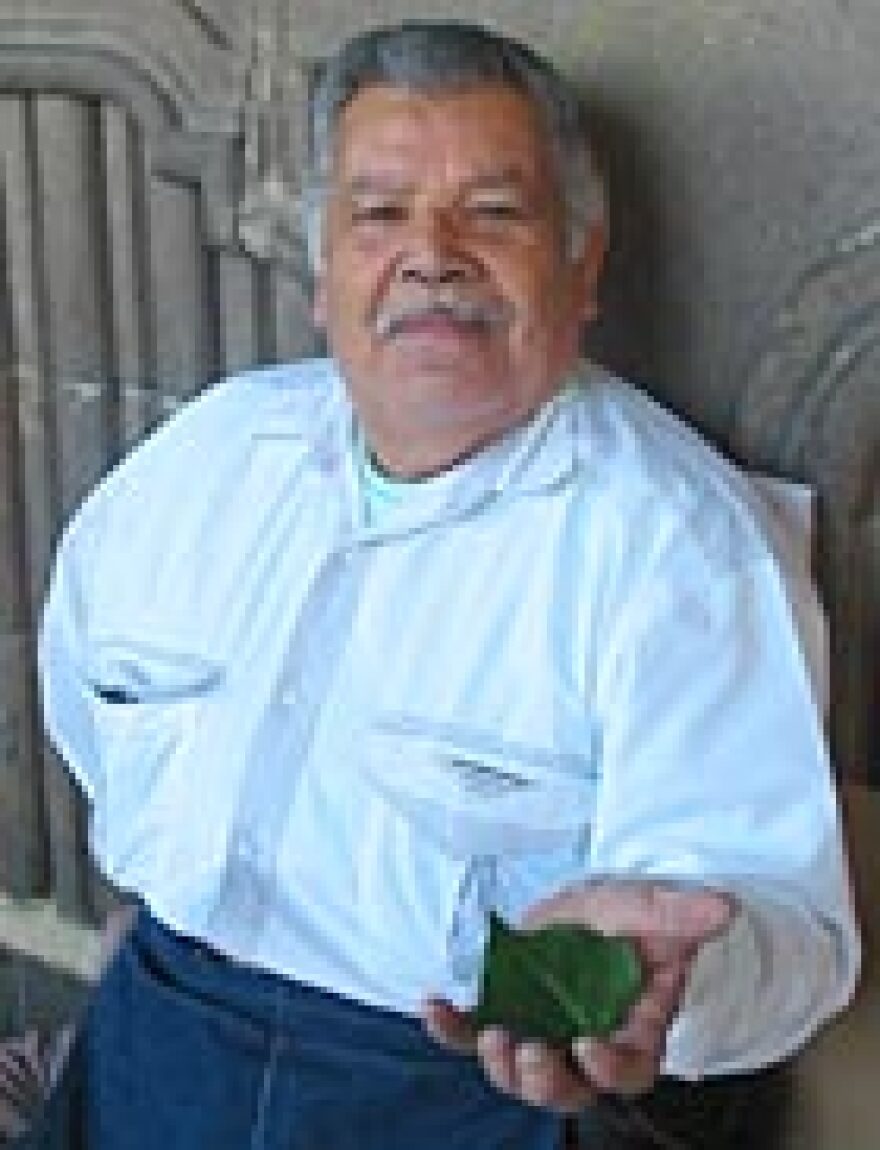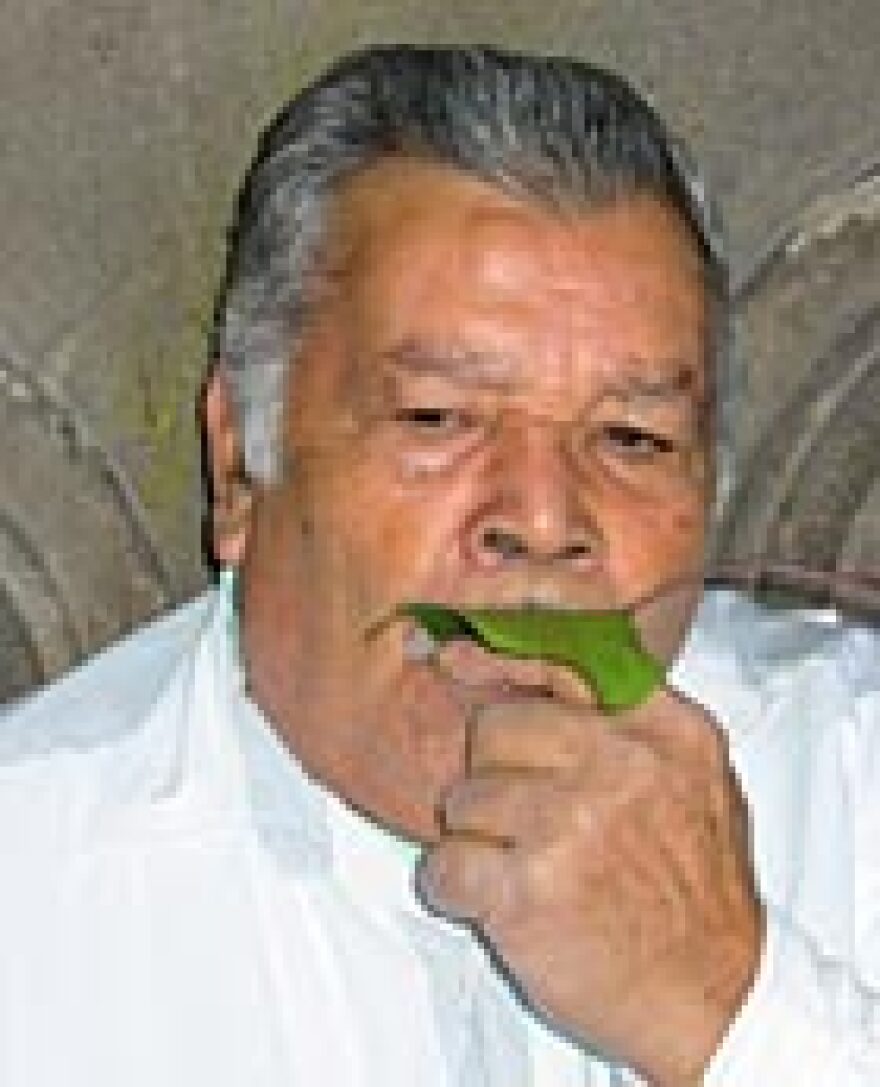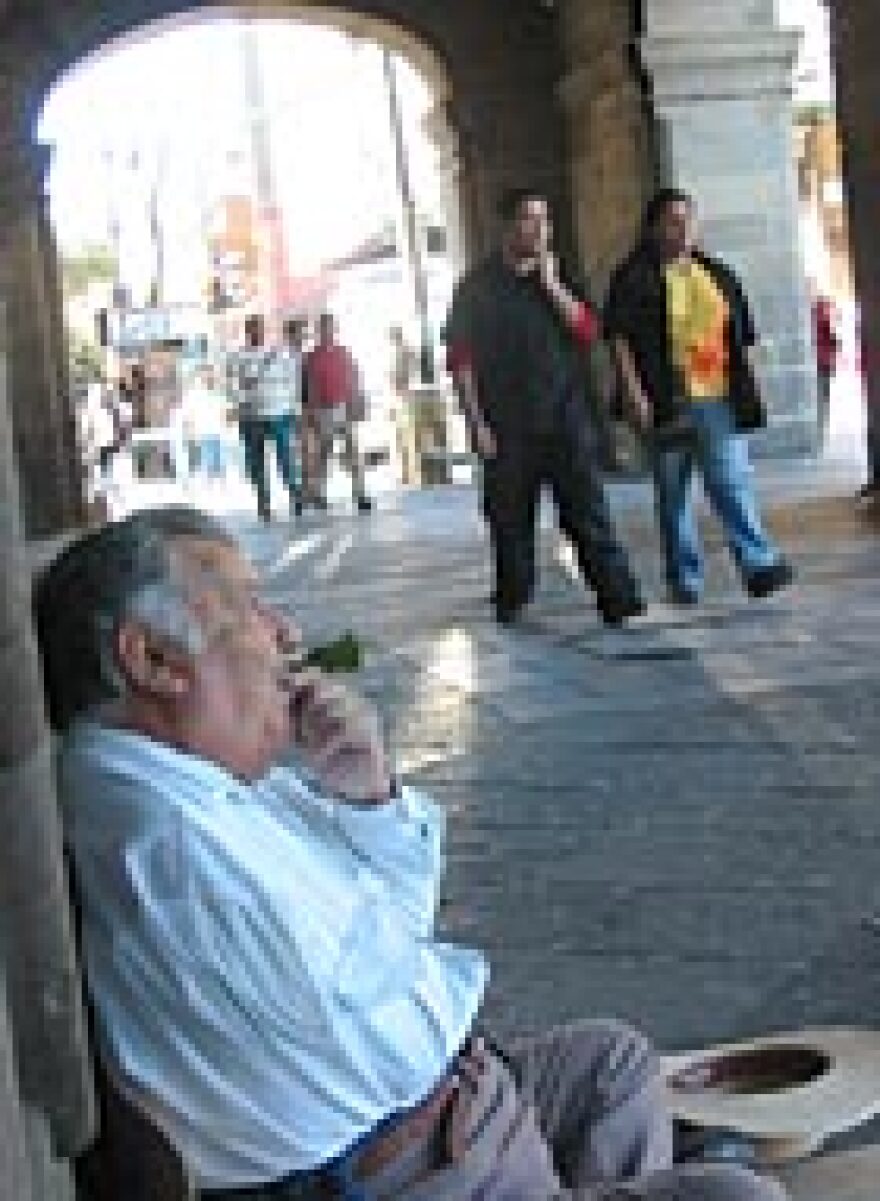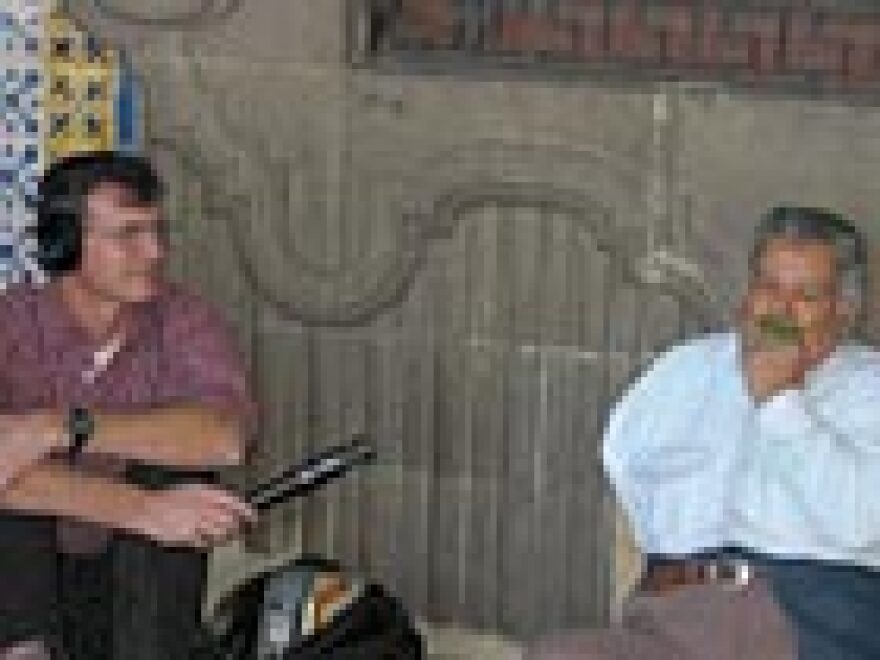



In 2001, NPR's John Burnett traveled to Mexico to report on a labor dispute at a Korean-owned maquiladora in Puebla. But a chance meeting with a unique musician in Mexico City led to story that still resonates with NPR listeners. Burnett recently returned to Mexico City to catch up with Carlos Garcia, the leaf player of the Zocalo, and wrote this essay exclusively for npr.org.
By John Burnett
I first met Carlos Garcia, the leaf player of Mexico City, in the spring of 2001 when I was late for an interview, trotting across the central square known as the Zocalo. I heard a strange noise that sounded like a cross between a violin and a harmonica. When I followed the intriguing sound to its source, there sat a one-armed man playing a leaf of English ivy. People hurried past as if this were one more urban annoyance, but I was captivated. Here was a man making music with a leaf, and not just the semblance of melody — he had intonation, vibrato, dynamics and emotion. He was a leaf maestro.
I punted the interview. For more than an hour I recorded Carlos and listened to his story. He told me that the tradition of playing musical leaves originated in his home state of Michoacan. After losing his right arm to an electrical burn, he moved to the capital in 1957 and began playing the leaf on buses. He believes — and no one disputes it — that he has become the master of the musical leaf. As a devout Jehovah's Witness, he considers his unusual musicianship to be a divine gift.
"God gave me the ability to do this. Not everyone can do it," Carlos said in our first interview. "I play the best I can for the people. For me, when I play it is a prayer to God."
David Harrington, the artistic director and first violinist for the eclectic string ensemble Kronos Quartet, "discovered" Carlos much the way I did. On a musical scouting trip to Mexico City in 1995, he was crossing the Zocalo when he heard a sound he took for a violin.
"That experience changed the way I think about instruments," he told me on the phone from his home in San Francisco, Calif. "It is empowering to know an object like a leaf can be turned into a musical instrument. It's not a million-dollar Stradivarius."
Harrington said it took seven years to make Nuevo, Kronos' acclaimed CD, released last April, which celebrates the music of Mexico. On the CD, Carlos plays his rendition of the popular Mexican love song "Perfidia," composed by Chiapas native Alberto Dominguez. The original recording was made on the sidewalk. Kronos took it and overdubbed a string arrangement, Harrington said, "to make it sound like Carlos is playing at Carnegie Hall accompanied by 101 strings."
I decided to do a follow-up story on Carlos, working on the assumption that his inclusion on Nuevo had been good for him. Perhaps he had finally earned some desperately needed income and some renown. But after I reached him on the phone at his home, I realized my supposition was sadly incorrect.
Carlos had not been paid by the Mexican record company that first recorded "Perfidia" on the street, nor was he paid after the company sold the licensing rights to Kronos. In fact, he'd never even heard the CD.
"We paid quite a bit of money to them (the Mexican label)," David Harrington says. "It looks like we paid for something they stole. We got ripped off, too." Harrington said all four Kronos members plan to take up a collection and help Carlos out (his wife needs a cataract operation), as well as pressure the Mexican record label to pay him.
When Kronos premiered Nuevo in Mexico City last April, Harrington looked unsuccessfully for Carlos because he had taken a personal interest in him. Harrington was worried the 72-year-old leaf player had fallen ill or died.
On Dec. 12, I found the leaf man in exactly the same place I first heard him. I gave him my copy of Nuevo and we listened to it right there on the sidewalk in the Zocalo. Again and again he played it. He was so proud. "I feel immortalized," he said, beaming.
To me, Carlos' astonishing story is one of survival. With his innate musical talent, who knows how far he could have gone if he had received musical training on a conventional instrument? But he belongs to the majority of Mexicans who grow up poor, uneducated, with decent education and career opportunity beyond their reach.
Carlos gets by on $25 to $30 in tips, plus the $60 a month he receives from the government. On this tiny sum, he has raised four daughters and built a two-story, cinder-block house — painted bright green, and planted in front with Easter lilies — on the outskirts of the city.
Somehow, he survives. But instead of cleaning windshields or selling cigarettes or scavenging for recyclable items in the garbage, he makes beautiful music that inspires.
Copyright 2023 NPR. To see more, visit https://www.npr.org.






